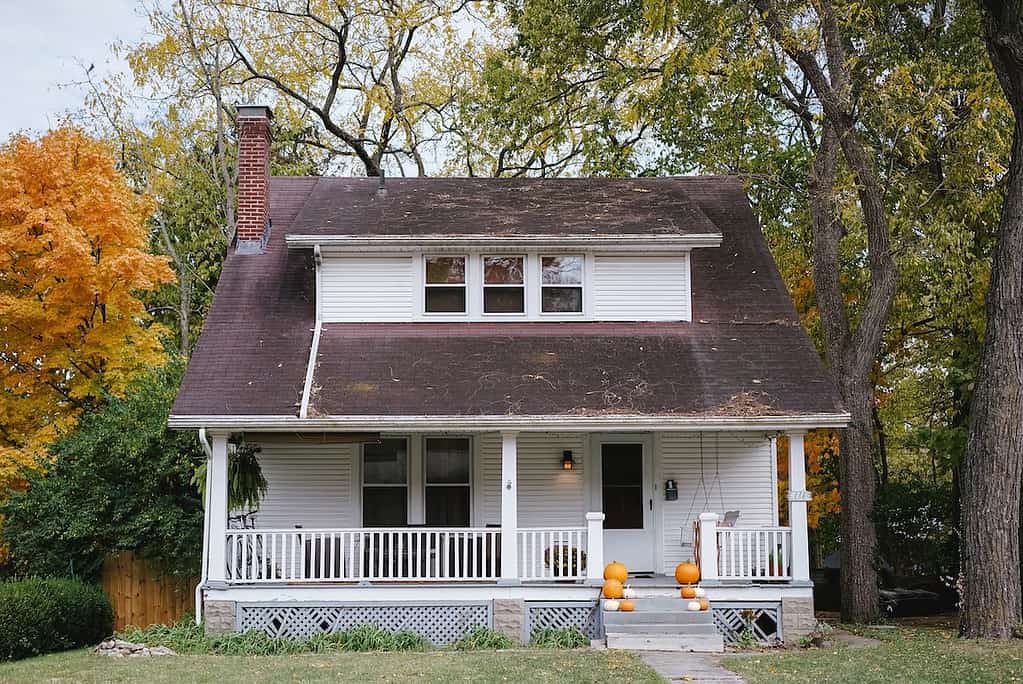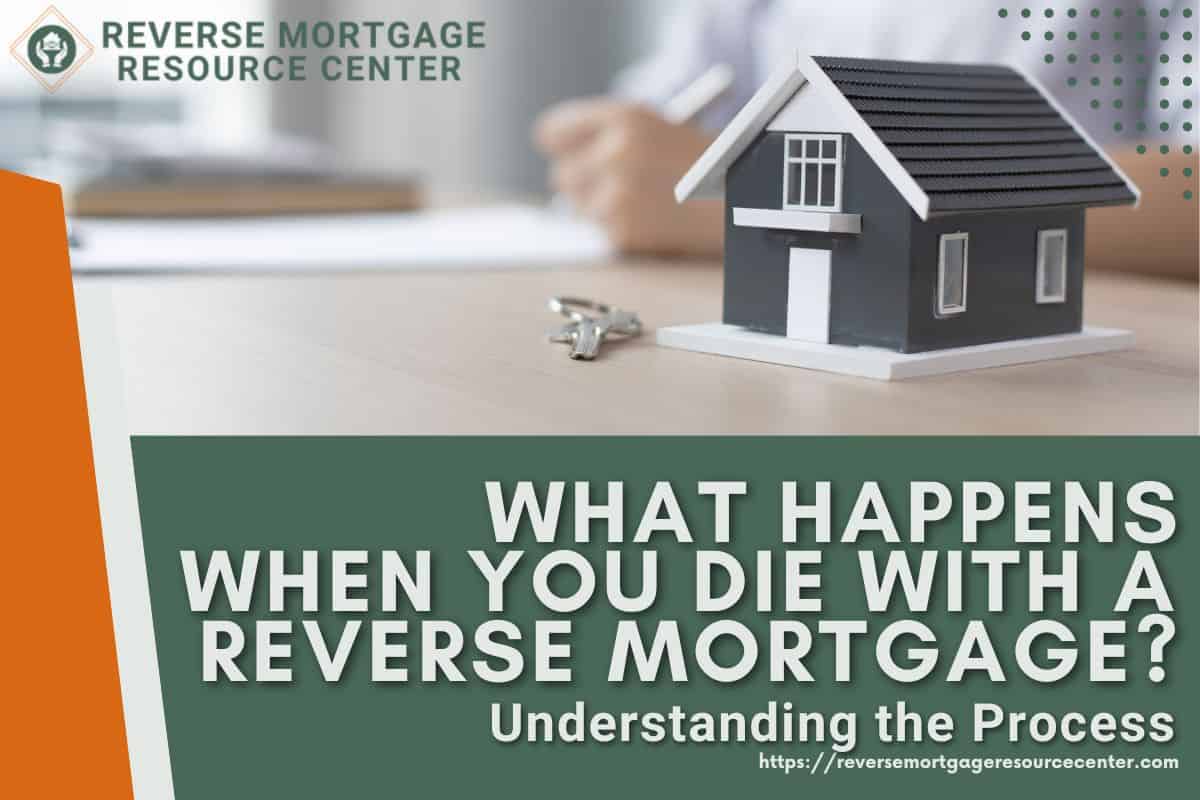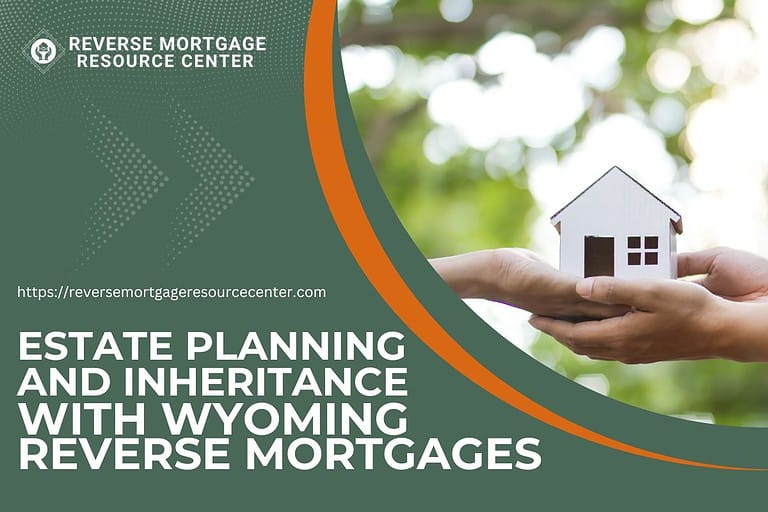What Happens When You Die with a Reverse Mortgage? Understanding the Process
Death can be an inevitable reality for all of us, but it’s important to understand the consequences it might have on our loved ones and our financial standing. One important aspect to consider is a reverse mortgage.
If you have a reverse mortgage, you may be wondering what happens to it when you pass away. Understanding the process can provide peace of mind and ensure that your loved ones are not burdened with unexpected financial responsibilities.
In this article, we’ll delve into what happens when you die with a reverse mortgage, providing clarity on the process and ensuring you have a comprehensive understanding of your options.

What Happens To a Reverse Mortgage When Borrower Dies?
A moment that may be difficult both emotionally and financially is after the loss of a loved one. But the presence of a loved one who had a reverse mortgage might bring an additional level of difficulty to a scenario that was already challenging.
When a person takes out a reverse mortgage, instead of using the equity in their house as security for the loan, the sum of the loan actually grows over time. Therefore, when the reverse mortgage borrower goes away, their heirs may be forced to decide how to manage the remaining loan amount on the reverse mortgage.
This may be a difficult choice. It is very necessary to have a solid understanding of the choices that may be made, in addition to the rights and obligations of the borrower’s heirs.
If you have this information, it may assist you with peace of mind and guarantee that your loved ones are safeguarded from any unforeseen financial commitments.
How to Pay off the Loan Balance?
As an owner of a reverse mortgage loan, it’s important to understand the options available to pay off the reverse mortgage balance. This is especially true when considering the future and the potential impact on your loved ones.
Fortunately, there are several ways to pay off the loan balance, including selling the property, paying the balance from other assets, or refinancing the property. It’s crucial to understand that the loan must be paid in full, as the lender has a lien on the property.
Having a plan in place can ensure that the loan balance is taken care of in a timely and efficient manner, without any added stress for you or your loved ones.
Can Someone Take Over a Reverse Mortgage?
After the passing of a loved one, many individuals find themselves wondering whether they are able to assume responsibility for the reverse mortgage. The good news is that it is feasible if a particular set of conditions is met.
Assuming a loan, which is another name for taking over a reverse mortgage, may be an excellent method to keep the property while continuing to reap the benefits of the loan’s terms and conditions. However, the procedure might be difficult, and it is necessary to get the consent of the lender.
When accepting a reverse mortgage, it is essential to have a solid understanding of the prerequisites for qualification as well as the processes involved in the process.
You will be able to offer yourself and your loved ones a feeling of continuity and security if you take over home equity, and you will also be able to ensure that the value of the home will continue to be in excellent hands.

How Do Heirs Pay off a Reverse Mortgage?
Paying back the loan sum on a reverse mortgage may be difficult and complex, particularly when the borrower has died away and the debt was left unpaid.
However, things don’t have to go that way at all. The heirs may choose to pay off the debt in a variety of ways, such as to sell the home, keep the home, and make payments on the amount using funds from other assets, or refinance the property.
Due to the fact that the lender has a lien on the property, the loan must be repaid in its whole as soon as possible. In the event that the outstanding amount on the loan is not paid, the lender may choose to foreclose on the property.
How Long Do You Have to Sell a House After Someone Dies With a Reverse Mortgage?
The passing of a loved one may be a trying time, both emotionally and monetarily, particularly in situations where the deceased person had a reverse mortgage on their home.
It’s possible that you’ll find yourself wondering, “How much time do I have left to sell the house?”
The borrower who had a reverse mortgage does not need to sell the property immediately after the borrower’s death since there is no predetermined time period for doing so.
Having said that, it is essential to be aware that the loan must be repaid on its whole, and that the property may be sold at any point in order to settle the remaining debt on the loan. To successfully manage the process of selling the property and paying off the remaining amount on the loan, it is recommended to collaborate with a real estate specialist.
When faced with challenging circumstances, having a clear understanding of the alternatives available to you and taking timely action may assist in preventing the property from falling into foreclosure and give peace of mind to you and your loved ones.
What Is Reverse Mortgage?
One kind of loan is known as a reverse mortgage, and it gives homeowners the opportunity to turn some of the value in their homes into cash.
With a reverse mortgage, in contrast to a conventional mortgage in which the homeowner is responsible for making monthly payments to the lender, the lender is the one who is responsible for making payments to the homeowner.
The remaining amount of the loan is repaid upon the borrower’s death, the sale of the property, or a permanent relocation out of the house. The debt may also grow over time. Mortgages in reverse are often taken out by retirees who are 62 years of age or older and want extra income during their golden years.
They provide a versatile source of funds that may be used for a number of charges, ranging from the costs of everyday life to the costs of medical treatment, and they can be used for any of these things.
Before engaging in a reverse mortgage, it is essential, however, to have a thorough understanding of the terms and circumstances of the loan, as well as the obligations that are incumbent upon the borrower.

How Does Reverse Mortgage Work?
The way a reverse mortgage works is by enabling homeowners to turn a part of the equity they have built up in their property into cash. While the homeowner keeps their title to the property, the amount still owed on the loan continues to accrue interest.
When the borrower sells the property, dies away, or permanently moves out of the residence, the loan is considered to be past due and must be repaid. For a borrower to be eligible for a reverse mortgage, they need to be at least 62 years old and have a certain amount of equity in their property.
The amount of money that may be borrowed is contingent upon a number of circumstances, such as the current interest rate, the assessed value of the property, and the age of the youngest borrower.
The borrower of a reverse mortgage has the option of receiving the cash either all at once, via a line of credit, or in the form of regular monthly installments. The remaining sum on the loan, in addition to any accrued interest, will be payable after the loan’s term concludes.
Before getting into a reverse mortgage, the borrower should ensure that they have a thorough understanding of the loan’s terms and circumstances, as well as the potential effect the loan might have on the borrower’s inheritance and future finances.
Conclusion
When it comes to reverse mortgages, having a grasp of the process that takes place after death may bring about a sense of calm not just for the borrower but also for their loved ones.
Even though the passing of a borrower who had a reverse mortgage may be a trying time, it is essential to have a solid understanding of the many choices for paying down the remaining sum on the loan.
This may include selling the property, making payments on the amount using funds from other assets, or refinancing the property. If you want to guarantee that you end up with the best possible results, it is highly recommended that you seek the guidance of an experienced financial specialist.

REVERSE MORTGAGE RESOURCE CENTER ~lIVE lIFE ON yOUR tERMS~
Our Lending Team has been serving our clients since 2004. We are passionate about serving our clients with integrity to help them achieve their financial goals.







